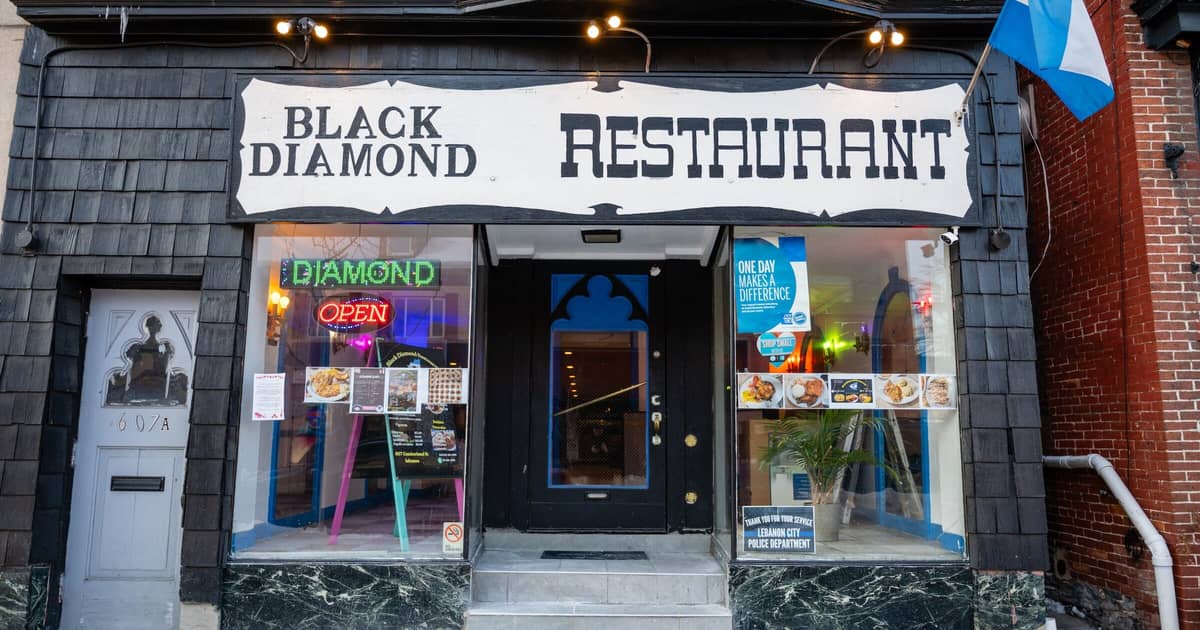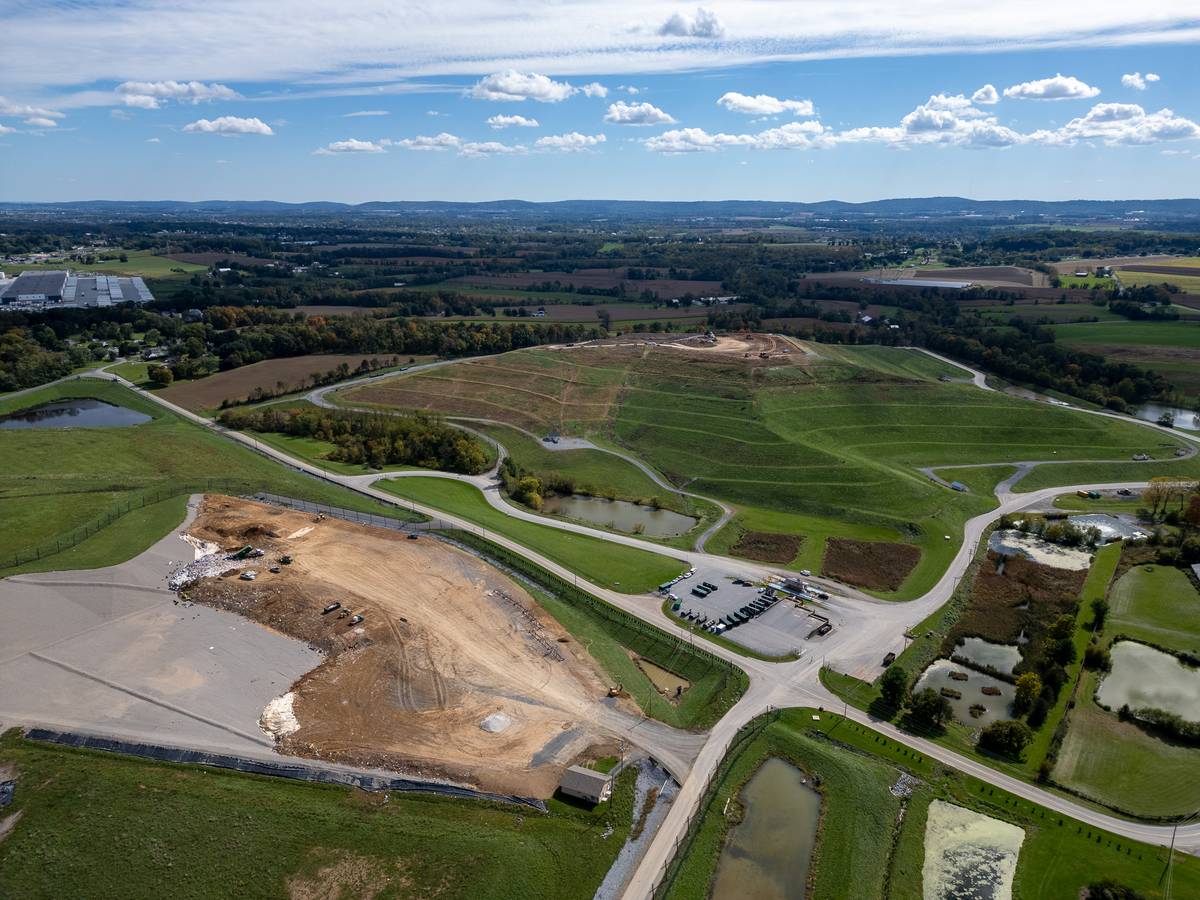June 30, 1973, was the last day of mining operations at the Cornwall Ore Mine, an industry that dominated Lebanon County industry for more than two centuries.
On June 17, 2023, the Friends of Cornwall Iron Furnace will commemorate the 50th anniversary of the mine’s closing with a free celebration at Cornwall Elementary School.
“So many people know that this is part of their family history,” Cornwall Iron Furnace Historic Site administrator Michael Emery told LebTown. “You’d be hard pressed here in Lebanon County to talk to someone who didn’t have some connection to Cornwall – the mine, the processing plant, the railroads – because it employed so many people for such a long time.”
The 1973 closing date catches some people by surprise, Emery said, because a lot of local residents associate the closing with Agnes, a devastating tropical storm that hit the region on July 22, 1972. Actually, he said, the mine continued operations for another year after the storm, although much of the work after Agnes was associated with cleanup operations.
Although it’s been half a century since the mine stopped producing ore, Emery said the history remains a topic of interest for local residents and out-of-town visitors alike.
“We’ve successfully held many talks related to the mine over the years. We just started having in-person talks again back in March,” he said. “A lot of locals come out, including some veterans who worked in the mines. We always try to recognize former miners.
“The mines really helped transform the area into what it is today.”
A lot of local residents owe their existence in Lebanon County to the mine, Emery explained, because some ancestor came to the area because of the opportunities the mine and its associated industries provided.
Without the mine, he said, Lebanon County “would be very different today.”
“Lebanon has a very long history of manufacturing. If we hadn’t had the iron, that wouldn’t have been here,” he said. “The mine paid for the canal, paid for the railroad. That was all largely funded by iron.”
The economy would have lagged without the jobs generated by mining and smelting operations, Emery said. Without the mine, he said, “Lebanon would be even more agrarian than it is.”
Event is free
The event on June 17 is free, family-friendly and wheelchair accessible, according to a press release from Cornwall Iron Furnace.
Activities begin at 10 a.m. in the Cornwall Elementary School auditorium, with remarks and recollections from community historians and local dignitaries. The tribute will conclude with the recognition of former miners in attendance as well as a wreath-laying ceremony at the miner statue in front of the school.
According to an application for funding to Lebanon County Commissioners, at least 20 former miners and more than 100 of their family members plan to be at the ceremony. More than 800 people have expressed interest in attending the free event.
Afterwards, guests will be invited back to Cornwall Iron Furnace for refreshments and fellowship.
In conjunction with the anniversary event, the Friends of Cornwall Iron Furnace will unveil a new publication, “Always More Production,” by local geologist and historian Michael Weber. Emery noted that Weber is a frequent speaker and a volunteer at the historical site.
The book, which will be available for purchase that day, offers a scholarly and well-researched history of Cornwall’s mining operations, featuring many photographs and historic documents as well as information garnered from records of the Cornwall Ore Bank Company and Bethlehem Steel Corp.
“That’s something we didn’t have before,” Emery said, “a book that talked about what happened at the mine.”
Weber will be on hand on June 17 to meet guests and sign copies of his book.
Historical significance
Emery noted that Cornwall gets a lot of visitors from out of state who are interested in learning more about the industry’s history.
“When people look at furnaces and the history of iron, Pennsylvania is in a rather unique situation,” he said. “Iron was such a part of Pennsylvania’s existence. And, because of that, Pennsylvania became a leader in railroading. If you want to see where all that happened, you come to Pennsylvania.”
While larger cities, such as Pittsburgh and Bethlehem, have their own stories to tell, Cornwall remains a major piece of the puzzle.
“If you want to see what a cold-blast furnace looked like, this is the only one, out of approximately 200 historically, that still exists in our time,” Emery said. “It has not been rebuilt, and it’s largely intact to the way it was in 1883.”
Historically, the Cornwall Ore Mine was one of the most productive iron ore mining enterprises in the world, the press release notes. Between 1737 and 1973, more than 106 million tons of ore were unearthed in the mine, and during that 236-year span, thousands of workers made the villages of Cornwall, Burd Coleman, Rexmont, and Minersvillage their homes.
Tours of the furnace will be offered on the day of the event. Tickets can be purchased at the Cornwall Iron Furnace Visitor Center at 94 Rexmont Road.
Furnace tours cost $8 for adults, $7 for senior citizens and AAA members, and $4 for youth (ages 13-17). Children 12 and under are free.
Looking ahead, Emery said the historical site has several events and presentations on the calendar, including a lecture about the Colemans and Martic Forge by Jim Polczynski on Aug. 8, a lecture on the Battle of Germantown by Mike Harris on Oct. 10, a lecture on iron ore and slavery in Pennsylvania by Cory Young on Nov. 14, and a Christmas at Cornwall program on Dec. 2.
Call the furnace at 717-272-9711 or check the website at cornwallironfurnace.org for more information.
Questions about this story? Suggestions for a future LebTown article? Reach our newsroom using this contact form and we’ll do our best to get back to you.

Keep local news strong.
Cancel anytime.
Monthly Subscription
🌟 Annual Subscription
- Still no paywall!
- Fewer ads
- Exclusive events and emails
- All monthly benefits
- Most popular option
- Make a bigger impact
Already a member? Log in here to hide these messages
While other local news outlets are shrinking, LebTown is growing. Help us continue expanding our coverage of Lebanon County with a monthly or annual membership, or support our work with a one-time contribution. Every dollar goes directly toward local reporting. Cancel anytime.























